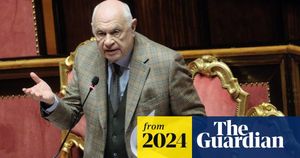Sungmin Song, a well-known figure, has found himself at the center of a social media firestorm after making comments deemed insensitive by many fans. This recent controversy, which has unfolded over the last few weeks online, highlights the tangled relationship between celebrities and their followers, particularly how social media platforms serve as both stages for public statements and forums for public backlash.
The core of the controversy erupted when Sungmin made comments during a livestream, discussing topics closely tied to mental health and self-care. Fans interpreted his remarks as dismissive, prompting numerous reactions from users across various platforms. According to several comments, fans felt disconnected from his perspective, leading to frustration and disappointment.
"I never intended to upset anyone," Sungmin stated on his official social media page, attempting to clarify his position and the motivations behind his comments. Yet this explanation seemed insufficient for some who had already taken to social media to voice their concerns. One anonymous user remarked, "This just shows how disconnected some celebrities can be from their fans' realities." Such sentiments have circulated widely, highlighting the chasm between public expectations versus personal intentions.
The rapid-fire nature of social media means opinions can spread like wildfire, and for celebrities like Sungmin, this can spell disaster. Many fans articulated their disappointments, underscoring the importance of empathy and awareness, especially when discussing serious issues. "We need to hold public figures accountable for their words," said one fan activist, emphasizing the need for celebrities to be mindful of their statements, as their influence carries significant weight.
The fallout from the controversy has led to introspection not only for Sungmin but also for fans who engage with celebrities daily through screens. Discussions about mental health—specifically how public figures discuss it—have become mainstream, reflecting how society grapples with these conversations. It raises questions about the responsibilities of public figures and their obligation to understand the contexts from which their audiences come.
Throughout the ordeal, Sungmin has expressed his desire to learn and grow from this experience. The challenge now lies not just with him but with the industry norms around celebrity discourse. How can celebrities move forward to promote constructive discussions about sensitive issues without alienation?
While the situation remains fluid, what is clear is the dialogue it has sparked. Celebrities like Sungmin Song must find ways to effectively communicate with their audiences—empathically and responsively. Just as fans feel deeply connected to their idols, they also expect sincerity and sensitivity during vulnerable conversations.
Moving forward, Sungmin has committed to engaging with his fans more thoughtfully, hoping to rebuild the trust lost during this controversy. His willingness to acknowledge his missteps and demonstrate growth might pave the way for his redemption—a path not uncommon among those who err under the watchful eyes of social media.
The overarching question now lingers: how will the narrative evolve for public figures like Sungmin? The keyboard warriors of social media won’t relent; they look for authenticity and, above all, compassion. A careful balancing act lies at the heart of celebrity visibility today, where every comment can lead to awareness or alienation.



